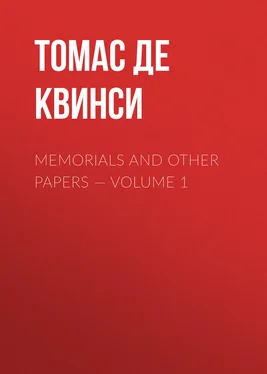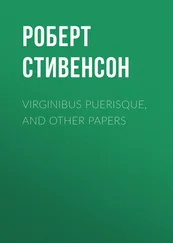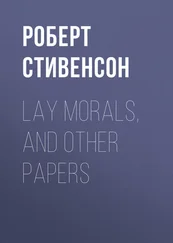Томас Де Квинси - Memorials and Other Papers — Volume 1
Здесь есть возможность читать онлайн «Томас Де Квинси - Memorials and Other Papers — Volume 1» — ознакомительный отрывок электронной книги совершенно бесплатно, а после прочтения отрывка купить полную версию. В некоторых случаях можно слушать аудио, скачать через торрент в формате fb2 и присутствует краткое содержание. Жанр: foreign_prose, literature_19, foreign_antique, на английском языке. Описание произведения, (предисловие) а так же отзывы посетителей доступны на портале библиотеки ЛибКат.
- Название:Memorials and Other Papers — Volume 1
- Автор:
- Жанр:
- Год:неизвестен
- ISBN:нет данных
- Рейтинг книги:3 / 5. Голосов: 1
-
Избранное:Добавить в избранное
- Отзывы:
-
Ваша оценка:
- 60
- 1
- 2
- 3
- 4
- 5
Memorials and Other Papers — Volume 1: краткое содержание, описание и аннотация
Предлагаем к чтению аннотацию, описание, краткое содержание или предисловие (зависит от того, что написал сам автор книги «Memorials and Other Papers — Volume 1»). Если вы не нашли необходимую информацию о книге — напишите в комментариях, мы постараемся отыскать её.
Memorials and Other Papers — Volume 1 — читать онлайн ознакомительный отрывок
Ниже представлен текст книги, разбитый по страницам. Система сохранения места последней прочитанной страницы, позволяет с удобством читать онлайн бесплатно книгу «Memorials and Other Papers — Volume 1», без необходимости каждый раз заново искать на чём Вы остановились. Поставьте закладку, и сможете в любой момент перейти на страницу, на которой закончили чтение.
Интервал:
Закладка:
Thomas De Quincey
Memorials and Other Papers — Volume 1
FROM THE AUTHOR, TO THE AMERICAN EDITOR OF HIS WORKS
These papers I am anxious to put into the hands of your house, and, so far as regards the U.S., of your house exclusively; not with any view to further emolument, but as an acknowledgment of the services which you have already rendered me; namely, first, in having brought together so widely scattered a collection—a difficulty which in my own hands by too painful an experience I had found from nervous depression to be absolutely insurmountable; secondly, in having made me a participator in the pecuniary profits of the American edition, without solicitation or the shadow of any expectation on my part, without any legal claim that I could plead, or equitable warrant in established usage, solely and merely upon your own spontaneous motion. Some of these new papers, I hope, will not be without their value in the eyes of those who have taken an interest in the original series. But at all events, good or bad, they are now tendered to the appropriation of your individual house, the Messrs. TICKNOR & FIELDS, according to the amplest extent of any power to make such a transfer that I may be found to possess by law or custom in America.
I wish this transfer were likely to be of more value. But the veriest trifle, interpreted by the spirit in which I offer it, may express my sense of the liberality manifested throughout this transaction by your honorable house.
Ever believe me, my dear sir,
Your faithful and obliged,
EXPLANATORY NOTICES
Many of the papers in my collected works were originally written under one set of disadvantages, and are now revised under another. They were written generally under great pressure as to time, in order to catch the critical periods of monthly journals; written oftentimes at a distance from the press (so as to have no opportunity for correction); and always written at a distance from libraries, so that very many statements, references, and citations, were made on the authority of my unassisted memory. Under such circumstances were most of the papers composed; and they are now reissued in a corrected form, sometimes even partially recast, under the distraction of a nervous misery which embarrasses my efforts in a mode and in a degree inexpressible by words. Such, indeed, is the distress produced by this malady, that, if the present act of republication had in any respect worn the character of an experiment, I should have shrunk from it in despondency. But the experiment, so far as there was any, had been already tried for me vicariously amongst the Americans; a people so nearly repeating our own in style of intellect, and in the composition of their reading class, that a success amongst them counts for a success amongst ourselves. For some few of the separate papers in these volumes I make pretensions of a higher cast. These pretensions I will explain hereafter. All the rest I resign to the reader's unbiased judgment, adding here, with respect to four of them, a few prefatory words—not of propitiation or deprecation, but simply in explanation as to points that would otherwise be open to misconstruction.
1. The paper on "Murder as one of the Fine Arts" [Footnote: Published in the "Miscellaneous Essays."] seemed to exact from me some account of Williams, the dreadful London murderer of the last generation; not only because the amateurs had so much insisted on his merit as the supreme of artists for grandeur of design and breadth of style; and because, apart from this momentary connection with my paper, the man himself merited a record for his matchless audacity, combined with so much of snaky subtlety, and even insinuating amiableness, in his demeanor; but also because, apart from the man himself, the works of the man (those two of them especially which so profoundly impressed the nation in 1812) were in themselves, for dramatic effect, the most impressive on record. Southey pronounced their preeminence when he said to me that they ranked amongst the few domestic events which, by the depth and the expansion of horror attending them, had risen to the dignity of a national interest. I may add that this interest benefited also by the mystery which invested the murders; mystery as to various points but especially as respected one important question, Had the murderer any accomplice? [Footnote: Upon a large overbalance of probabilities, it was, however, definitively agreed amongst amateurs that Williams must have been alone in these atrocities. Meantime, amongst the colorable presumptions on the other side was this:—Some hours after the last murder, a man was apprehended at Barnet (the first stage from London on a principal north road), encumbered with a quantity of plate. How he came by it, or whither he was going, he steadfastly refused to say. In the daily journals, which he was allowed to see, he read with eagerness the police examinations of Williams; and on the same day which announced the catastrophe of Williams, he also committed suicide in his cell.] There was, therefore, reason enough, both in the man's hellish character, and in the mystery which surrounded him, for a Postscript [Footnote: Published in the "Note Book."] to the original paper; since, in a lapse of forty-two years, both the man and his deeds had faded away from the knowledge of the present generation; but still I am sensible that my record is far too diffuse. Feeling this at the very time of writing, I was yet unable to correct it; so little self-control was I able to exercise under the afflicting agitations and the unconquerable impatience of my nervous malady.
2. "War." [Footnote: Published in "Narrative and Miscellaneous Essays."]—In this paper, from having faultily adjusted its proportions in the original outline, I find that I have dwelt too briefly and too feebly upon the capital interest at stake. To apply a correction to some popular misreadings of history, to show that the criminal (because trivial) occasions of war are not always its trifle causes, or to suggest that war (if resigned to its own natural movement of progress) is cleansing itself and ennobling itself constantly and inevitably, were it only through its connection with science ever more and more exquisite, and through its augmented costliness,—all this may have its use in offering some restraint upon the levity of action or of declamation in Peace Societies. But all this is below the occasion. I feel that far grander interests are at stake in this contest. The Peace Societies are falsely appreciated, when they are described as merely deaf to the lessons of experience, and as too " romantic " in their expectations. The very opposite is, to my thinking, their criminal reproach. He that is romantic errs usually by too much elevation. He violates the standard of reasonable expectation, by drawing too violently upon the nobilities of human nature. But, on the contrary, the Peace Societies would, if their power kept pace with their guilty purposes, work degradation for man by drawing upon his most effeminate and luxurious cravings for ease. Most heartily, and with my profoundest sympathy, do I go along with Wordsworth in his grand lyrical proclamation of a truth not less divine than it is mysterious, not less triumphant than it is sorrowful, namely, that amongst God's holiest instruments for the elevation of human nature is "mutual slaughter" amongst men; yes, that "Carnage is God's daughter." Not deriving my own views in this matter from Wordsworth,—not knowing even whether I hold them on the same grounds, since Wordsworth has left his grounds unexplained,—nevertheless I cite them in honor, as capable of the holiest justification. The instruments rise in grandeur, carnage and mutual slaughter rise in holiness, exactly as the motives and the interests rise on behalf of which such awful powers are invoked.
Читать дальшеИнтервал:
Закладка:
Похожие книги на «Memorials and Other Papers — Volume 1»
Представляем Вашему вниманию похожие книги на «Memorials and Other Papers — Volume 1» списком для выбора. Мы отобрали схожую по названию и смыслу литературу в надежде предоставить читателям больше вариантов отыскать новые, интересные, ещё непрочитанные произведения.
Обсуждение, отзывы о книге «Memorials and Other Papers — Volume 1» и просто собственные мнения читателей. Оставьте ваши комментарии, напишите, что Вы думаете о произведении, его смысле или главных героях. Укажите что конкретно понравилось, а что нет, и почему Вы так считаете.












